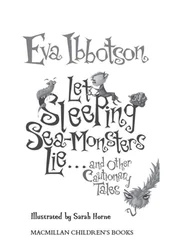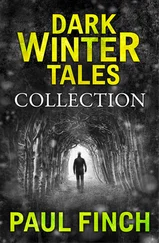“Alcohol would be an excellent fuel,” his granddaughter said.
“She’d have the ability to mimic the superficial effects of aging,” the mech said. “Also, biological life evolves incrementally across generations. I’d want her to be able to evolve across upgrades.”
“Fair enough. Only I’d do away with upgrades entirely, and give her total conscious control over her body. So she could change and evolve at will. She’ll need that ability, if she’s going to survive the collapse of civilization.”
“The collapse of civilization? Do you think it likely?”
“In the long run? Of course. When you take the long view it seems inevitable. Everything seems inevitable. Forever is a long time, remember. Time enough for absolutely everything to happen.”
For a moment nobody spoke.
Then the old man slapped his hands together. “Well, we’ve created our New Eve. Now let’s wind her up and let her go. She can expect to live—how long?”
“Forever,” said the mech.
“Forever’s a long time. Let’s break it down into smaller units. In the year 2500, she’ll be doing what?”
“Holding down a job,” the granddaughter said. “Designing art molecules, maybe, or scripting recreational hallucinations. She’ll be deeply involved in the culture. She’ll have lots of friends she cares about passionately, and maybe a husband or wife or two.”
“Who will grow old,” the mech said, “or wear out. Who will die.”
“She’ll mourn them, and move on.”
“The year 3500. The collapse of civilization,” the old man said with gusto. “What will she do then?”
“She’ll have made preparations, of course. If there are radiation or toxins in the environment, she’ll have made her systems immune from their effects. And she’ll make herself useful to the survivors. In the seeming of an old woman she’ll teach the healing arts. Now and then she might drop a hint about this and that. She’ll have a data base squirreled away somewhere containing everything they’ll have lost. Slowly, she’ll guide them back to civilization. But a gentler one, this time. One less likely to tear itself apart.”
“The year one million. Humanity evolves beyond anything we can currently imagine. How does she respond?”
“She mimics their evolution. No—she’s been shaping their evolution. She wants a risk-free method of going to the stars, so she’s been encouraging a type of being that would strongly desire such a thing. She isn’t among the first to use it, though. She waits a few hundred generations for it to prove itself.”
The mech, who had been listening in fascinated silence, now said, “Suppose that never happens? What if starflight will always remain difficult and perilous? What then?”
“It was once thought that people would never fly. So much that looks impossible becomes simple if you only wait.”
“Four billion years. The sun uses up its hydrogen, its core collapses, helium fusion begins, and it balloons into a red giant. Earth is vaporized.”
“Oh, she’ll be somewhere else by then. That’s easy.”
“Five billion years. The Milky Way collides with the Andromeda Galaxy and the whole neighborhood is full of high-energy radiation and exploding stars.”
“That’s trickier. She’s going to have to either prevent that or move a few million light years away to a friendlier galaxy. But she’ll have time enough to prepare and to assemble the tools. I have faith that she’ll prove equal to the task.”
“One trillion years. The last stars gutter out. Only black holes remain.”
“Black holes are a terrific source of energy. No problem.”
“1.06 googol years.”
“Googol?”
“That’s ten raised to the hundredth power—one followed by a hundred zeros. The heat-death of the universe. How does she survive it?”
“She’ll have seen it coming for a long time,” the mech said. “When the last black holes dissolve, she’ll have to do without a source of free energy. Maybe she could take and rewrite her personality into the physical constants of the dying universe. Would that be possible?”
“Oh, perhaps. But I really think that the lifetime of the universe is long enough for anyone,” the granddaughter said. “Mustn’t get greedy.”
“Maybe so,” the old man said thoughtfully. “Maybe so.” Then, to the mech, “Well, there you have it: a glimpse into the future, and a brief biography of the first immortal, ending, alas, with her death. Now tell me. Knowing that you contributed something, however small, to that accomplishment—wouldn’t that be enough?”
“No,” Jack said. “No, it wouldn’t.”
Brandt made a face. “Well, you’re young. Let me ask you this: Has it been a good life so far? All in all?”
“Not that good. Not good enough .”
For a long moment the old man was silent. Then, “Thank you,” he said. “I valued our conversation.” The interest went out of his eyes and he looked away.
Uncertainly Jack looked at the granddaughter, who smiled and shrugged. “He’s like that,” she said apologetically. “He’s old. His enthusiasms wax and wane with his chemical balances. I hope you don’t mind.”
“I see.” The young man stood. Hesitantly, he made his way to the door.
At the door, he glanced back and saw the granddaughter tearing her linen napkin into little bits and eating the shreds, delicately washing them down with little sips of wine.
5
North of Diddy-Wah-Diddy
The train to Hell don’t stop in New Jersey. It pulls out of Grand Central Station at midnight, moving slow at first but steadily picking up speed as it passes under the Bay, and by the time we hit the refineries, it’s cannonballing. We don’t stop for nothing. We don’t stop for nobody. And if you step in our way expecting Old Goatfoot to apply the brakes, well, pardon me for saying it, but you’re going to get exactly what’s coming to you.
We don’t stop and we don’t slow down once that gleaming black-and-silver locomotive leaves the station. Not ‘til we get to where we’re going. Once we’re rolling, there’s no second chances. And no exceptions neither.
So that night the train did stop, I knew straight off that we were in for some serious trouble.
We were barreling through the Pine Barrens, shedding smoke and sulfur and sparks, when I heard the air brakes squeal. The train commenced to losing velocity. I was just about to open the snack bar, but right off I heard that sound, I flipped around the CLOSED sign, grabbed my cap, and skittered off to see what the matter was.
The damned were slumped in their seats. Some of them stared straight ahead of themselves at nothing in particular. Others peered listlessly out the windows or else at their own grey reflections in the glass. Our passengers are always a little subdued in the early stages of the trip.
“Oh, porter!” one of the damned called to me. She was a skinny little white woman with a worried-looking kind of pinched-in face. “Would it be all right of me to open the window just a crack, so I could get some air?”
I smiled gently into those big pleading eyes of hers and said, “Why, bless you, honey, you can do whatever you want. What difference could it possibly make now?”
She flinched back like I’d hit her.
But I reached over and took the window clips and slid it down two inches. “Don’t go no further, I’m afraid. Some of the lost souls might take it into their heads to try and … you know?” I lowered my voice in a confidential manner.
Timidly, she nodded.
I got a pillow out of the overhead and fluffed it up for her. “Now you just let me slide this behind your head. There! Isn’t that better? You relax now, and in a couple minutes the kitchen will be open. When I come back, I’ll give you a menu. Got a nice selection of sandwiches and beverages. You rest up and have a comfy ride.”
Читать дальше
![Майкл Суэнвик Tales of Old Earth [A collection of short-stories] обложка книги](/books/388351/majkl-suenvik-tales-of-old-earth-a-collection-of-short-stories-cover.webp)










